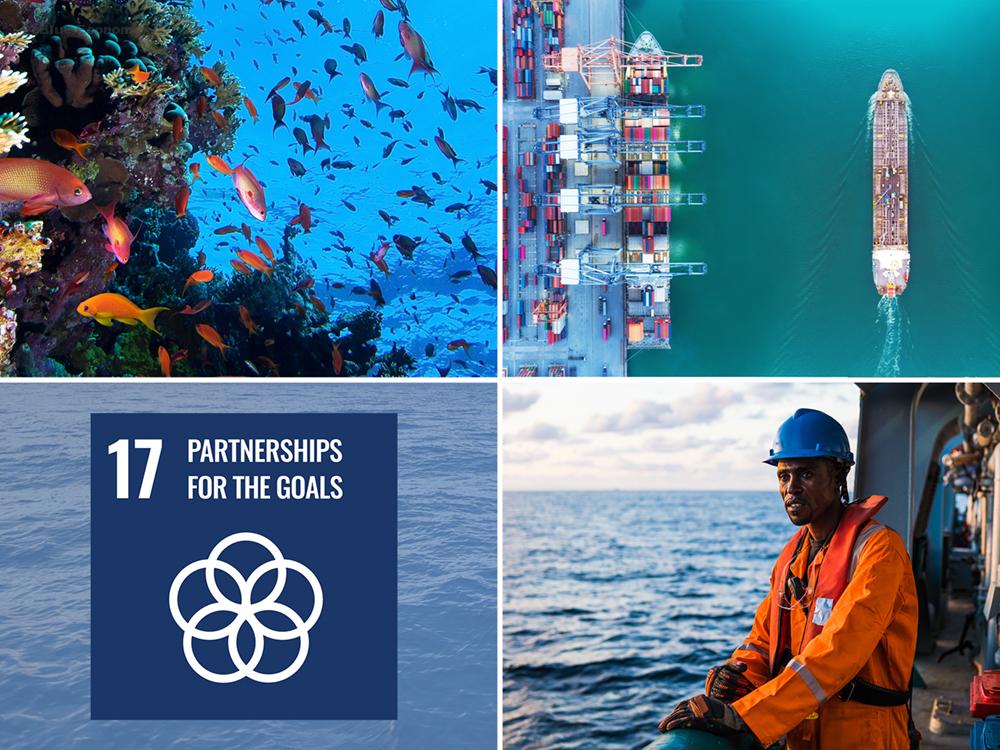One year after its creation, IMO’s Department for Partnerships and Projects (DPP) has bold ambitions to expand its portfolio of global and regional projects.
These new initiatives will further support developing countries to address the world’s most pressing ocean and environmental challenges, including climate change, marine litter and biodiversity.
The Department, in 2021, will also be working with other divisions of IMO to identify and mobilise resources for projects on maritime digitalization.
“Despite the challenges of the global pandemic, in 2020, we mobilised approximately US$13 million, bringing the total funding for long-term projects to around US$45 million.
In 2021, we want to go further and even double this portfolio. To achieve that, we will build on our past successes in delivering impactful results and use innovative public and private sector partnership models to expand the projects in maritime digitalization and decarbonization.

eBlue_economy_Jose Matheicka_ Chief of the Department
We want to develop a new portfolio of projects to support sustainable maritime transport – a ‘SMART‘ portfolio, as we call it,” said Jose Matheickal, Chief of the Department.

eBlue_economy_Kitack Lim
The DPP was created in March 2020 by IMO Secretary-General
to coordinate the development of strategic and innovative external partnerships and project implementation in line with his vision towards a “Voyage Together”.
This department positions IMO to support its long-term capacity building strategy through resource mobilisation and partnerships and facilitates the achievement of the UN Sustainable Development Goals (SDGs) for all Member States, with a special focus on least developed countries (LDCs) and small island developing States (SIDS).
The DPP has a strong focus on championing innovation in the maritime sector, including through global fora, such as the Maritime Zero- and Low-Emission Innovation Forum, scheduled to be held in September 2021.
During its first 12 months, the DPP has overseen the establishment of a new Global Industry Alliance (GIA) to address marine biofouling, which will help protect marine biodiversity and support energy efficiency in shipping.
Pilot countries have also been recruited for the GloLitter project to combat marine plastic litter and the GreenVoyage2050 project to move shipping towards a low-carbon future.
The FIN-SMART Roundtable on Financing Sustainable Maritime Transport was also launched with the support of international financial institutions, and the NextGEN concept to facilitate information sharing on decarbonization initiatives was initiated.
Amongst plans for the next 12 months, the IMO-Singapore Future of Shipping Conference (23 April) will see the launch of the NextGEN website and workshops to facilitate collaboration and information sharing.
The GHG-SMART project will also be commissioned to build capacity among SIDS and LDCs to implement the IMO initial GHG Strategy.
Moving into digitalization, a new global project will be launched to assist developing countries to implement electronic exchange of information in ports for ship clearance.
In other areas, a new Global Industry Alliance to address marine plastic litter will be launched. The third phase of the ongoing SENSREC project related to environmentally sound and safe ship recycling in Bangladesh will get under way.
To support better coordination and liaison, IMO has invited Member States to designate an IMO National Knowledge Partnership Officer, as a focal point for partnership dialogue between beneficiary and donor countries. Member States looking to be actively involved in or to sponsor projects should contact
press release














